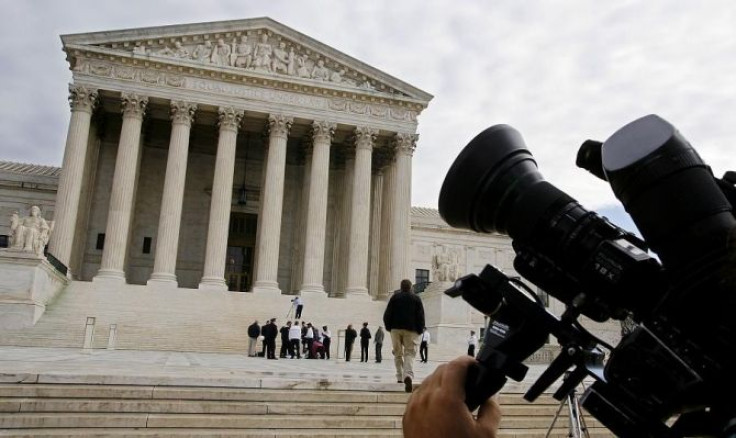Supreme Court: No to TV Broadcasts, Yes to Same-Day Recordings for Healthcare Cases

The U.S. Supreme Court on Friday rejected requests from news organizations to allow live televised coverage of this month’s upcoming arguments on the constitutionality of President Obama's health care reform, but agreed to release same-day audio recordings of the arguments that are expected to take place from March 26 to 28.
“The Court will post the audio recordings and unofficial transcripts as soon as the digital files are available for uploading to the Website,” the press release said. “The audio recordings and transcripts of the March 26-28 morning sessions should be available no later than 2 p.m. The recording and transcript of the March 28 afternoon session should be available no later than 4 p.m.”
The court did not actually address the media requests it has received to televise the proceedings, but simple said that audiotapes and transcripts of the sessions would be made available within two hours of the end of the proceedings on each of the three days reserved for the argument.
“Because of the extraordinary public interest in those cases, the Court will provide the audio recordings and transcripts of the oral arguments on an expedited basis through the Court’s Website,” according to the press release.
The C-SPAN cable network said that it would air the audio arguments on a broadcast channel and on the radio in its entirety as soon as they are made available.
Traditionally, the court has never allowed cameras in the courtroom or live broadcasts of its proceedings, and the Senate Judiciary Committee approved Cameras in the Courtroom Act of 2011 that was introduced by Sen. Richard Durbin (D-Illinois) and Sen. Charles Grassley (R-Iowa) in February calling for the Supreme Court to televise arguments, but the fate of the proposed bill is uncertain because of separation-of-powers concerns.
The latest decision mirrors the 2000 Bush v. Gore case that sealed George W. Bush's election as president, the first time the justices provided same-day audio recordings of arguments after they rejected pleas to air the proceedings live in a case that captivated the nation.
In the years following the Bush v. Gore case, the justices would sometimes allow same-day release of audio in high-profile cases, but in October 2010, the court said that they would no longer grant requests for same-day release of audio argument sessions, but instead posted all arguments on its website on Fridays. Recently, argument transcripts were also made available in just a few hours.
The court had also extended health care arguments by 30 minutes, making it six hours, the longest time that has been set aside for any issue in more than 45 years.
In December a poll revealed nearly three-quarters of the nation believes that the upcoming case should be televised, across all political affiliations and ages, according to Gallup. Past polls also found that there was a national split of opinions about the healthcare overhaul. Forty-seven percent of Americans were in favor of repealing the healthcare law and 42 percent wanted it to be maintained, according to a Gallup survey.



























